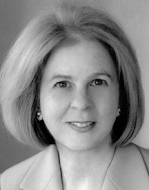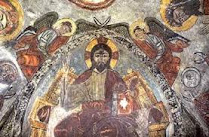Scholar Elaine Pagels writes in Why Religion? “When the author of the Gospel of Truth sets out to reveal Paul’s secret teaching, he begins by asking, What happened before the beginning of time? In answer, the author offers a primordial drama of creation, telling how, when ‘all beings’ began to search for the One from whom they came forth, they couldn’t find him. Feeling abandoned, not knowing where they came from, they suffered anguish and terror, like children wandering in the dark, searching in vain for their lost parents.
"As this gospel tells it, what separates all beings, including ourselves, from God is not sin. Instead, what frustrates our longing to know our source is its transcendence, and our own limited capacity for understanding. Yet when these beings—or when we—realize that we can’t find our way home, don’t know where we came from, or how we got here, we feel utterly lost. Overwhelmed by grief and fear, we may rush into paths that lead nowhere, more lost than ever, imagining that there’s nothing beyond the confusion we see in the world around us.
“At this point, the Gospel of Truth turns toward a drama of cosmic redemption. When the Father sees his children terrified and suffering, ensnared by negative energies, he sends his Son, ‘the hidden mystery, Jesus the Christ,’ to show them a path and bring them back ‘into the Father, into the Mother, Jesus of the infinite sweetness.’ And although, as Paul says in 1 Corinthians, ignorant and violent ‘rulers of this world’ tortured and crucified Jesus, the Father overturned their conspiracy, transforming even their hideous crime into a means of grace.
“To show this, the Gospel of Truth reframes the vision of the cross from an instrument of torture into a new tree of knowledge. Here Jesus’s battered body, ‘nailed to a tree,’ is seen as fruit on a tree of ‘knowing the Father,’ which unlike that tree in Paradise, doesn’t bring death, but life, to those who eat from it. Thus, the author suggests that those who participate in the Eucharist, eating the bread and drinking the wine that, symbolically speaking, are Jesus’s flesh and blood, ‘discover him in themselves’ while he ‘discovers themselves in him.’
“After years of contending with familiar Jewish and Christian sources, I found here a vision that goes beyond what Paul calls ‘the message of the cross.’ Instead of seeing suffering as punishment, this gospel suggests that, seen through the eyes of wisdom, suffering can show how we’re connected with each other, and with God; what Paul’s letter to the Colossians calls ‘the mystery of Christ in you, the hope of glory. No wonder, then, that Christians called their sacred meal a mystery (mysterion), a Greek term later translated as ‘sacrament’ (from Latin sacramentum).”
“The author of the Gospel of Truth rejects images of God as a harsh, divine judge who sent Jesus into the world ‘to die for our sins.’ Instead, he suggests, the loving and compassionate Rather sent Jesus to find those who were lost, and to bring them back home. So rather than see the writing on the cross as any death sentence—whether Pilate’s or God’s—this author suggests instead that Jesus published there ‘the living book of the living,’ a book ‘written in our heart’ that teaches us who we really are, since it includes the names of everyone who belongs to God’s family.”
Pagels, Elaine. Why Religion? (pp. 200-201). HarperCollins. Kindle Edition.


















